Here we are in mid-August and we are eagerly looking forward to welcoming back our teachers and then our students in the weeks ahead!
I am definitely staying out of the prediction business, but we remain hopeful that this year will begin to feel more like normal and that it will – perhaps – be a bit more predictable. Either way, after the experiences of the last two school years, the Ottawa Jewish Community School is ready to deal with all issues – known and unknown – to ensure that 2021-2022 is a successful and joyous year for all our students, teachers and families.
We do recognize that there can be some churn and angst as the return of school draws closer. We read the news and study the numbers like you do and it can sometimes feel like we are trying to put a puzzle together with new pieces constantly being dropped in. As was true last year, we are simply doing our best to stay on top of the health guidelines, to hold awareness of what the public board and other private schools are doing, and to be as transparent as we can about what we have already decided and what remains in play.
We received provincial guidelines for reopening just a few weeks ago and have been working hard to clarify what they will mean for OJCS.

OJCS’ COVID protocols have been determined in consultation with both Ottawa Public Health, as well as the document COVID 19: Ontario Health, Safety and Operational Guidance for Schools. OJCS will continue to prioritize the health and safety of our school community and to deeply value the importance of our partnership with parents in ensuring students who attend school have followed the protocols carefully. We have again put together a list of Frequently Asked Questions (FAQs) for your convenience. If you do not see your question on this list – or have additional questions or concerns based on any of the answers – please do not hesitate to be in contact with the school for greater clarity. (Please note that the entire list of FAQ will not only be uploaded to our website, but will remain dynamic so that updates and revisions will live there [not in my blog or email].)
Let’s get started…
How will cohorting work this year?
As per provincial guidelines, classes will remain smaller than typical, and while indoors, students will be housed in one hallway with an assigned entrance/exit. Students will be masked from Kindergarten – Grade 8 [not JK], and supported through strategic classroom organization and design to maintain distance. [The province is requiring masking in Grades 1-8; OJCS has chosen to remain consistent with last year’s success and will continue to mask in Kindergarten.] Students will have contact across their own grade-level when outdoors for recess, where masking will be encouraged for those students who are comfortable. Parents of twins have had their initial requests regarding class placements honoured.
Where will learning happen this school year?
Each cohort in Grades JK-3 will continue to be assigned a primary classroom where all its learning activities are designed to take place. General, French and Jewish Studies Teachers for each grade-level will move between these assigned grade-level spaces (with students remaining in their designated classroom whenever possible). [Students in JK have the same teachers throughout the day.] Cohorts in Grades 4-8 will be assigned a primary classroom or learning space (i.e. the Library), but students will travel to limited additional spaces during their learning day (i.e. for language learning).
How will Nutrition Breaks work?
We will continue to have students eat supervised within their own classrooms by a strategic and consistent team member. Middle School students will continue to access an outdoor cafeteria as long as weather permits. All students will wash their hands or use sanitizer before eating.
Will teachers be wearing masks?
Yes! Our teachers have been vaccinated, however they will all continue to wear masks whenever supporting students, and access face shields and protective eyewear, as needed.
What parts of the program have been adjusted to allow for a safe reopening?
- For JK – Grade 5, Art will continue to be taught virtually in the cohort spaces with support from the grade-level team. Morah Shira will continue to work closely with the classroom teachers. Middle School students who select Art for their elective, will work directly with Morah Shira, masked and socially distanced.
- Library workshops will also be taught in-person, with precautions, and all library services will be rendered virtually and contactless.
- Recess will be scheduled by grade-level, supervised by the strategic and consistent team members, wherever possible, and will take place in scheduled and demarcated outdoor locations which will be cleaned (see below) between usages.
- Physical Education classes will resume this school year, with masking and distancing in place. For Middle School students, PE Uniforms will continue to NOT be worn.
- We will be offering Dramatic Arts this school year in lieu of music, so that our students can resume engagement in meaningful arts-related activities.
- Tefillah (even in Middle School) will take place in grade-level groupings and with COVID-wise precautions. [A separate email to Middle School parents with more details is forthcoming.]
- All assemblies, events, holidays, etc., will be reimagined with any necessary adjustments or virtual components to stay in compliance with guidelines.
How else have you restricted access?
As will be described in greater detail in our soon-to-be revised OJCS Handbook, we have created three different entrances and exits to the school to further separate Junior Kindergarten – Grade 1, Grades 2 – 4 and Grades 5 – 8. Similarly, we have cohort-specific bathroom access to those groupings.
Last year, I completed an Ottawa Public Health COVID-19 Screening Tool each morning to confirm my child was feeling well. What is the protocol this year?
We will continue to ask families to access this screening tool EACH and EVERY day: Ottawa Public Health COVID-19 Screening Tool for School or Child Care. Please be in touch with the school office if the screening tool is indicating that your child should remain at home.
Is there anything special I should be purchasing to best prepare my child for school?
It will be helpful for parents to invest in quality outerwear for each season of the school year, as PE classes will prioritize outdoor activities, and recesses will happen rain or shine (for the most part). Time outdoors will continue to be prioritized for our students and their wellness.
Also, please try to send your child to school with enough water for them to drink throughout the day (i.e. two bottles of water if needed). We do have bottle filling water fountains in each designated hallway, however, for health reasons it is best to minimize use as it involves having children touching their bottle tops and then a community fountain.
What kinds of enhanced clearing protocols will be in place throughout the school year?
Working with the Campus, we will have enhanced cleaning both in terms of frequency as well as products. The Campus will be using a fog sanitizer machine that’s called the Fogger. It can sanitize a classroom in minutes, as well as hallways. It will be in use during each school day to sanitize outdoor play structures and each evening in every classroom and learning space. If a child or teacher is sent home due to illness, it will be brought in immediately to that room for a cleaning. The product is an organic chemical that is safe for humans, animals, plants, etc.
In addition…
- In accordance with recommendations from Public Health Ontario and Ottawa Public Health, high touch areas will be cleaned and disinfected at least twice daily. This includes door handles, push bars, railings, washroom surfaces, elevator buttons, kitchen surfaces, and light switches.
- All other spaces will be cleaned and disinfected once per day, including hard floors.
- In accordance with recommendations from Public Health Ontario and Ottawa Public Health, outdoor play structures will be disinfected during school hours, after each cohort has used the structure. Protocols for cleaning outdoor play structures during winter months will be determined at a later time, as further research is required as to the safety of doing so in sub-freezing temperatures.
- Sanitizing machines and stations have been set up in various locations on campus, and will be cleaned and filled as required. All hand sanitizer is alcohol-based.
- Touchless paper towel dispensers have been installed in many washrooms.
- All air filtration systems will be cleaned quarterly, and filters will be replaced regularly.
Can my child receive service from outside specialists?
We will continue to limit building access to all visitors due to COVID, as well as a lack of extra space due to our commitment to cohorting. We will be allowing students who require tutoring with a reading specialist who sees multiple OJCS students in Grades 1-3 to resume service. However, other specialists and professionals will need to see students outside of the school. We will not be able, during this phase of reopening, to provide on-site, in-person access to Speech and Language Pathologists, Occupational Therapists, mental health professionals, etc. We will try on a case-by-case basis to provide a supervised space for tele-therapy or virtual sessions for students in Grades 4-8.
What do I do if my child is having a particularly difficult time emotionally as the result of COVID?
We are here to partner with you in all ways. Please let us know if there is anything we should be aware of so we can be as supportive as possible. The grade-level teams will all be paying close attention to our students and their needs. We also have a School Counsellor, Jennifer Munroe, available to help with student mental health. We can arrange for a referral if that would be a helpful layer.
Will students be allowed to use lockers / cubbies this year?
Yes, students will be able to have lockers and cubbies this school year. We will ensure the lockers are cleaned frequently.
What happens if I need to drop-off or pick-up my child from the school at some point throughout the school day?
The office staff will support with drop-off and pick-up from the front entrance, as parents, guests and visitors will not be able to access the building during this phase of reopening. Additionally, parents coming to pick up sick children or to take children to off-site appointments will be asked to wait outdoors. Our Office will be prepared to facilitate all these comings and goings via intercom. For more information about access to the building, please refer to the OJCS Handbook (when it is released).
How will IEP meetings be conducted in the fall?
Our Director of Special Education, Sharon Reichstein, will be in touch with all families of students with IEPs and facilitating IEP meetings via video conference.
Will families need to provide their children with masks and sanitizer?
Yes, please! We do ask families to equip their children with hand sanitizer to be kept in their desk, and to come with their own masks so that it is the brands they are most comfortable with. Every classroom is equipped with hand sanitizer and extra masks as well.
Will there be a Before Care and After Care program this year?
Yes, we will be running our usual Before Care program from the school gym from 7:30 AM – 8:30 AM each day. We will also be offering a Drop-In After Care program, as the JCC has limited space in their full-year program. More details to come.
Who do I get in touch with if my family develops COVID or has an exposure to COVID?
Please notify both Ottawa Public Health and OJCS immediately should you discover that you have come into contact with someone who has tested positive for COVID-19. For more information about our COVID health protocols, please refer to the OJCS Handbook.
Is there additional information regarding ventilation in the school?
All HVAC units have been cleaned, serviced and are all working within specifications. Campus has increased air flow on HVAC units and new MERV 13 filters are on order and will be installed on all HVAC units. We will continue to prioritize having windows and classroom doors open to increase air circulation.
Will there be COVID-wise fire drills this school year?
Yes, we have developed a fire safety curriculum that balances fire safety requirements with public health guidance to minimize the risk of COVID transmission. Each class will participate in age-appropriate programming with their teachers and then practice going outside via their designated exit and lining up outside.
Will there be a Photo Day this year?
Yes, on Tuesday, October 19th. We are moving forward with individual student photos and have liaised closely with LifeTouch to ensure COVID protocols will be in place (i.e. using our vast gym space, one class at a time, nothing to hold or touch in photos, etc…).

As always, if you have any questions or concerns with any of the above, please don’t hesitate to reach out. The revised OJCS Handbook should go live (and be sent out) soon, as will a final staffing update to close the loose ends from the spring.
Enjoy these final weeks of summer!
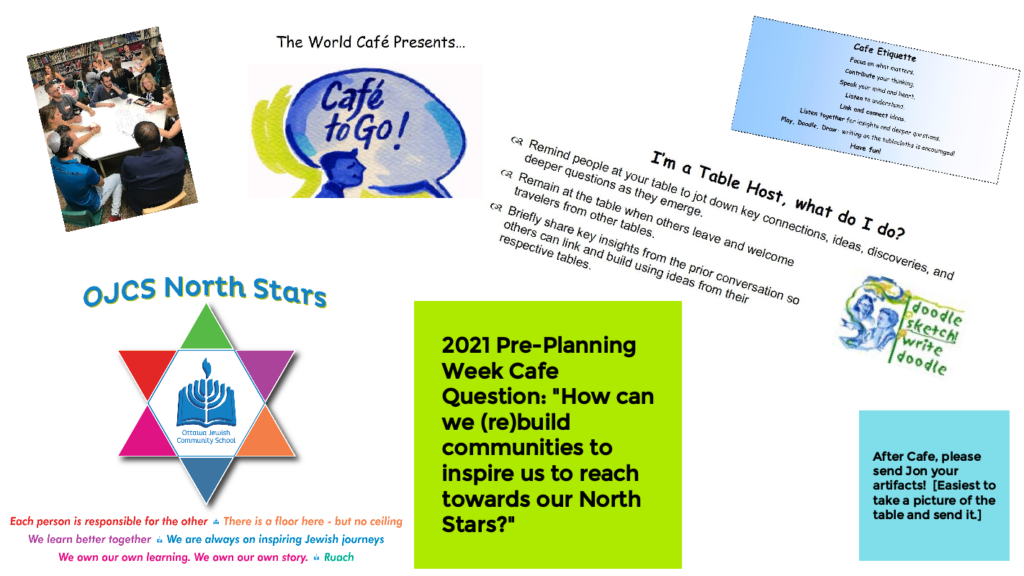
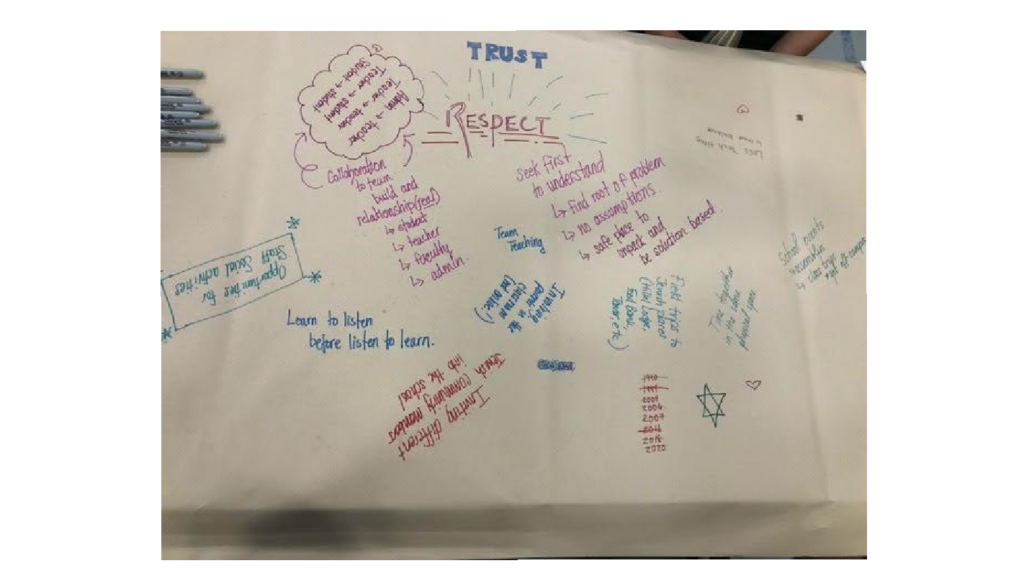
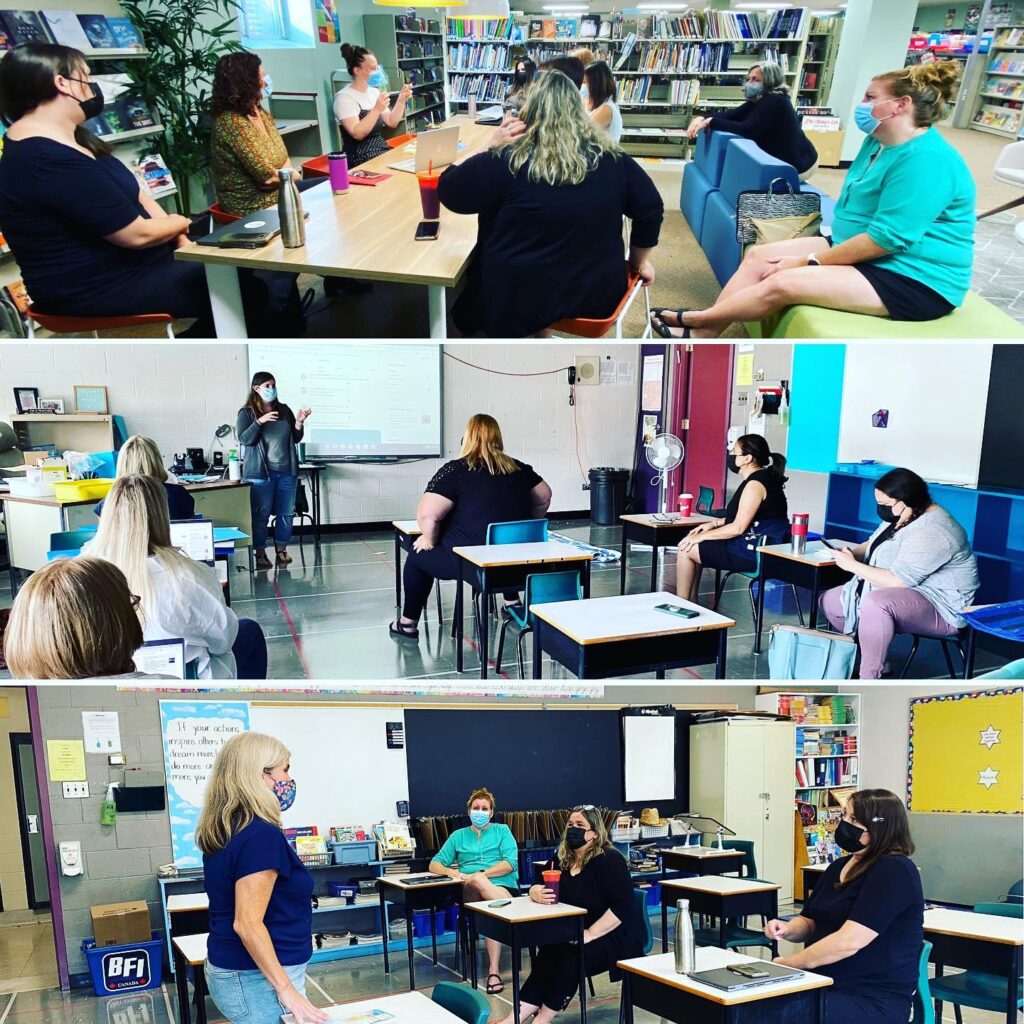


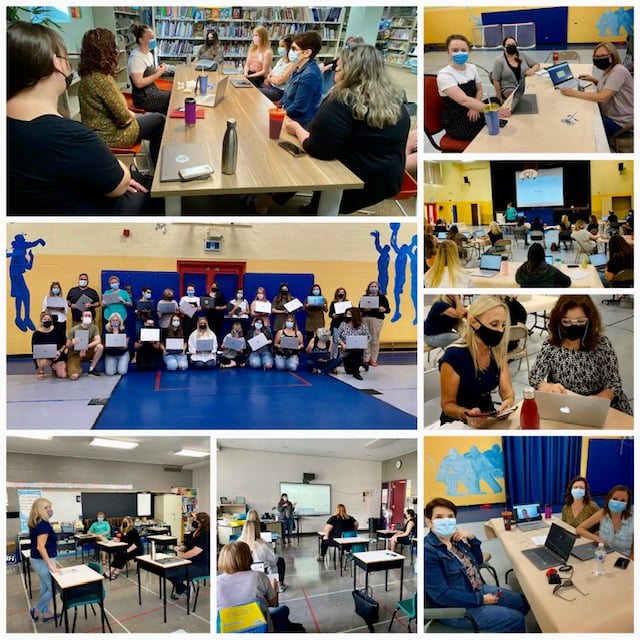


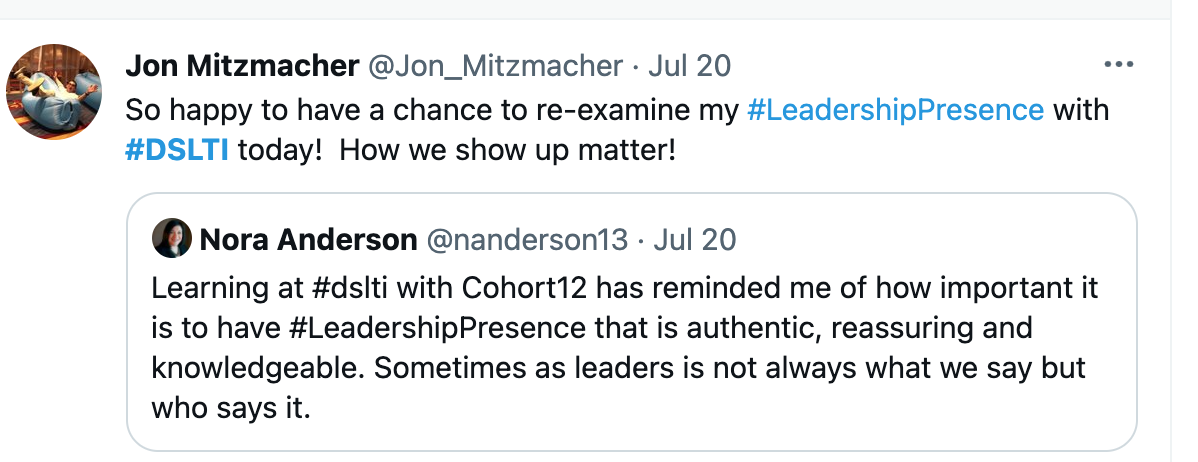
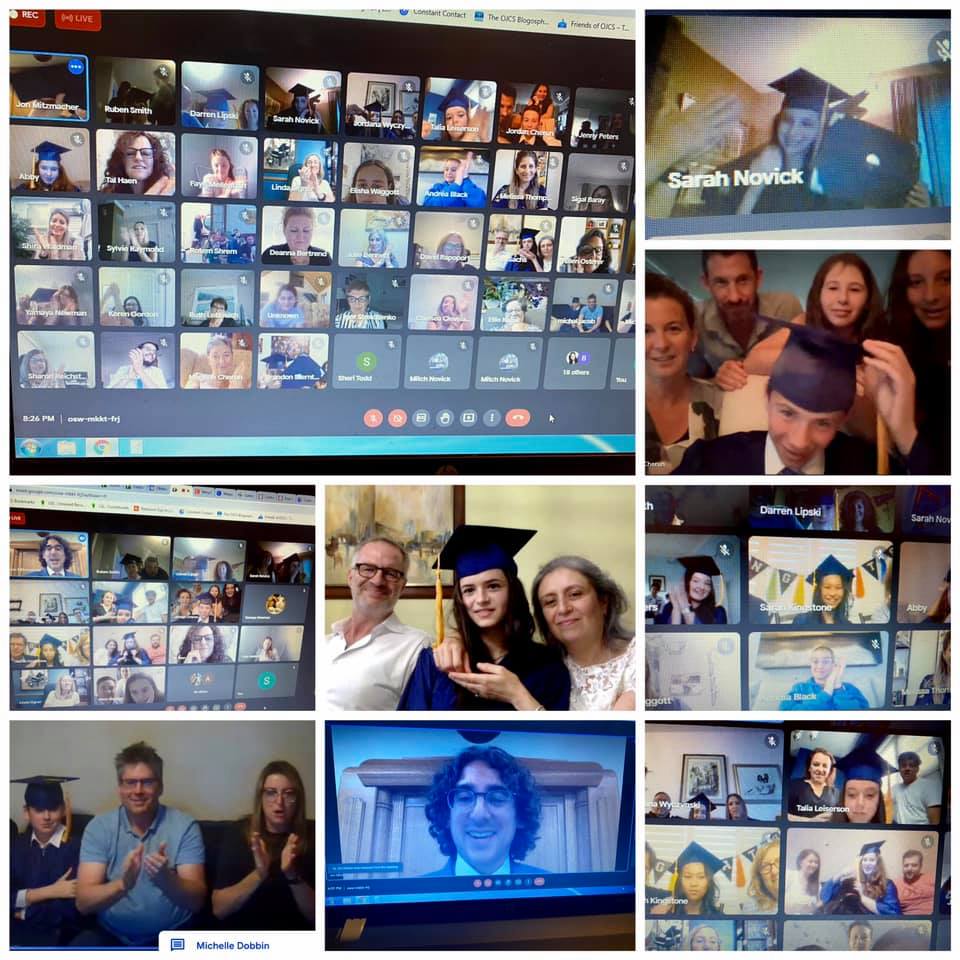


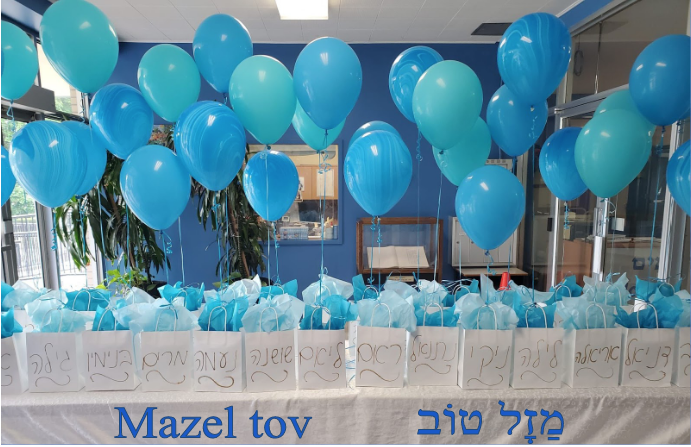
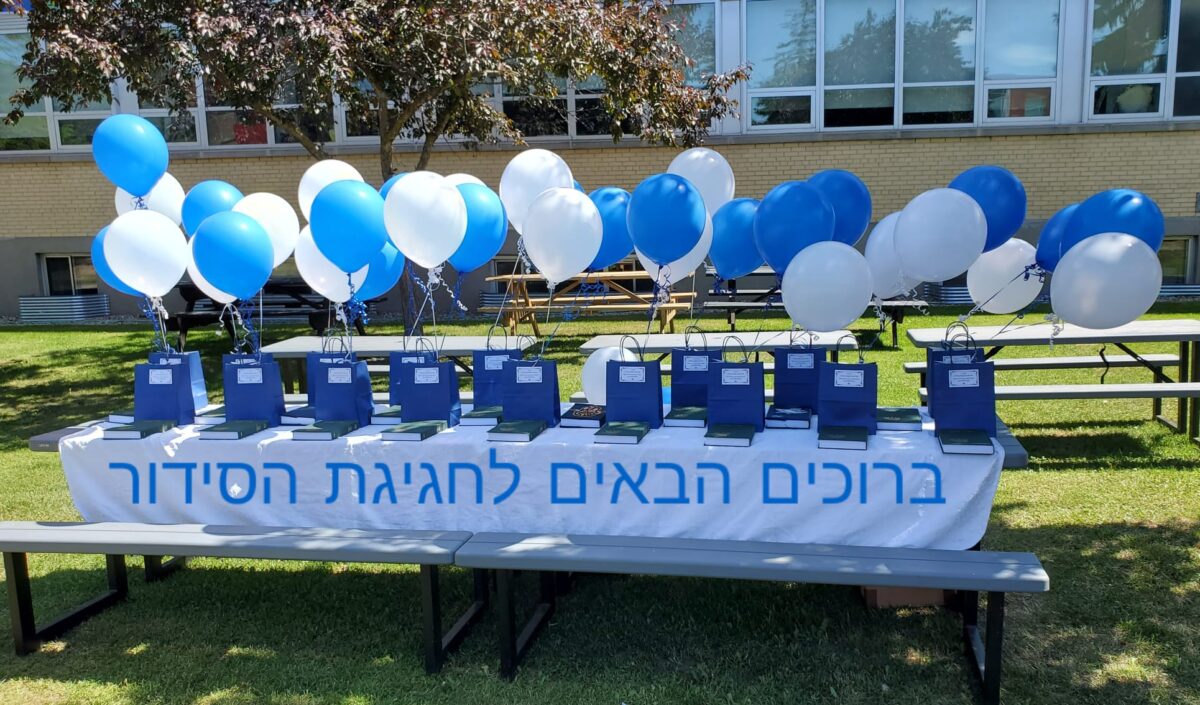

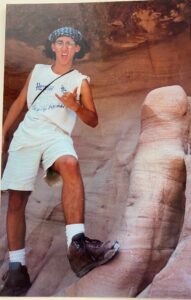 local Federation’s teen tour. It was an extraordinary experience and I met friends that summer that I am still close with today. I returned to Israel in 1992 as part of a
local Federation’s teen tour. It was an extraordinary experience and I met friends that summer that I am still close with today. I returned to Israel in 1992 as part of a